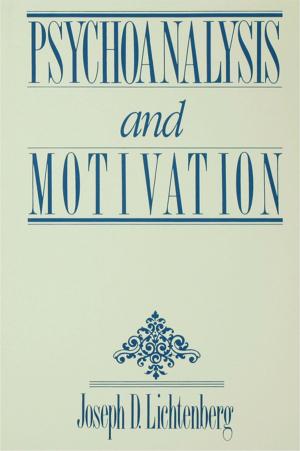Beyond Therapy
Igniting Life Focus Community Movements
Nonfiction, Health & Well Being, Psychology, Clinical Psychology| Author: | Erving Polster | ISBN: | 9781351295741 |
| Publisher: | Taylor and Francis | Publication: | September 8, 2017 |
| Imprint: | Routledge | Language: | English |
| Author: | Erving Polster |
| ISBN: | 9781351295741 |
| Publisher: | Taylor and Francis |
| Publication: | September 8, 2017 |
| Imprint: | Routledge |
| Language: | English |
In Beyond Therapy, Erving Polster examines the role of "life focus" in three of society's most familiar activities: ordinary conversation, the arts, and religion. He shows the life focus movement to be an indivisible complement to just simply living. In proposing a paradigm shift from psychotherapy's priority for changing people's troubled lives into the complementary purpose of illuminating their lives, the author invites the participation of many people who do not seek remedial treatment for emotional or psychological problems.
Polster incorporates a broader scenario for enhancing attention through community groups, showing that the convergence of people's minds on commonly important life themes creates enlightenment. This interlocked focus amplifies the ensuing conversational content and creates a meditation-like absorption. This kind of pointed focus, argues Polster, has the power to colour the lives of the participants.
This work offers rationale and design for life focus community groups, and also creates a heightened identity for the life focus movement, providing other foundational ideas that help to unify diverse approaches. Mental health professionals will benefit from its wealth of specific exercises and instructions for program design. Polster provides leaders and group members with a well-rounded perspective on the basics of personal enlightenment and communal belonging.
In Beyond Therapy, Erving Polster examines the role of "life focus" in three of society's most familiar activities: ordinary conversation, the arts, and religion. He shows the life focus movement to be an indivisible complement to just simply living. In proposing a paradigm shift from psychotherapy's priority for changing people's troubled lives into the complementary purpose of illuminating their lives, the author invites the participation of many people who do not seek remedial treatment for emotional or psychological problems.
Polster incorporates a broader scenario for enhancing attention through community groups, showing that the convergence of people's minds on commonly important life themes creates enlightenment. This interlocked focus amplifies the ensuing conversational content and creates a meditation-like absorption. This kind of pointed focus, argues Polster, has the power to colour the lives of the participants.
This work offers rationale and design for life focus community groups, and also creates a heightened identity for the life focus movement, providing other foundational ideas that help to unify diverse approaches. Mental health professionals will benefit from its wealth of specific exercises and instructions for program design. Polster provides leaders and group members with a well-rounded perspective on the basics of personal enlightenment and communal belonging.















